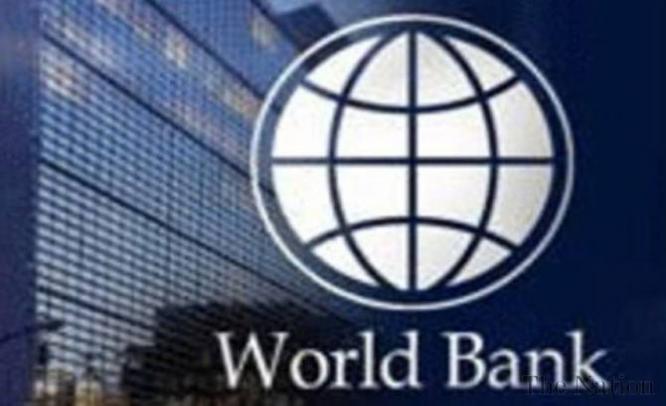Confronted by the problems created by the crisis, the Colombian government sought a loan from the World Bank to help buttress financial stability and continue developing capital markets.
30th july
Policy actions supported by this operation contributed to mitigating the impact of the 2008 global financial crisis in Colombia. Banking sector capitalization and liquidity improved despite the global financial crisis, while vibrant economic growth quickly resumed, averaging 5 percent in 2010-2011, following a modest growth deceleration in 2009. Strong economic growth also supported poverty alleviation. Between 2006 and 2011, the population living below the domestic poverty line declined by almost 8 percentage points.
Challenge
The significant economic challenges created by the global financial crisis of 2008 were compounded by a number of unregulated investment instruments (many of them pyramid schemes) offering returns of up to 300 percent within six months. Thousands of Colombians had invested in these schemes. Investors at the lower end of the income scale were particularly affected by losses from these investments. The collapse of one such pyramid in late 2008 affected over 200,000 people and led to rioting and violent protests in 13 cities. Although the authorities had been aware of the existence of the schemes, they could not take effective measures because it was difficult for them to prove that illegal collection of resources from the public had occurred.
Solution
Confronted by the problems created by the crisis, the Colombian government sought a loan from the World Bank to help buttress financial stability and continue developing capital markets. To strengthen financial sector resilience, the operation supported measures to bolster credit institutions’ capital and liquidity buffers through the capitalization of part of the profits obtained in 2008 and the introduction of liquidity requirements. This fast-disbursing loan also had the merit of assisting with a tight fiscal situation in an environment that generated additional demands on the social safety net.
The operation also supported increased powers for the prompt intervention and resolution of unauthorized financial intermediation activities, to prevent the growth of such schemes and minimize investors’ losses.
Finally, to foster sound capital market development, the program supported implementation of reforms that strengthened securities market architecture, infrastructure and operations, which resulted in market transparency and security.
Results
These reforms mitigated the impact of the global financial crisis and supported economic growth, key to alleviating poverty, which benefited the entire Colombian population. Improvements in several key outcome indicators reflect the progress achieved by the program:
- The banking system withstood the financial turbulence with capital and liquidity ratios well above regulatory requirements.
- Under its new empowerment, the Superintendence of Companies initiated 123 processes against unauthorized financial intermediaries (2009-2011) involving claims of US$4.1 billion, deactivating a major social crisis.
- The standardized derivatives market was launched and is growing rapidly (176 percent increase in trading contracts in 2011) currently covering foreign currency, interest, and commodities products.
- Financial market resilience and capital market development contributed to prompt economic recovery (4 percent average during 2009-11) and facilitated poverty reduction (population living in poverty declined by almost 8 percentage points between 2006 and 2011).
Bank Group Contribution
The Bank’s policy dialogue on financial sector reform with the Colombian authorities—spanning several administrations—was instrumental for the successful design and implementation of this operation. The loan was part of a broader partnership in development, which saw the approval of 20 loans totaling US$3.7 billion to Colombia under the 2008-2011 Country Partnership Strategy. Numerous knowledge pieces, the Financial Sector Adjustment Loan series, and the Business and Productivity and Efficiency Development Policy Loan (DPL) also supported financial sector strengthening and capital market development. The Bank continues to provide support through knowledge services, such as the 2012 Financial Sector Assessment Program (FSAP).
Partners
The prompt action to mitigate and contain the negative effects of the global financial crisis consisted in a variety of countercyclical monetary and fiscal policy measures that relied also on increased funding from other multinationals, such as the International Monetary Fund (IMF) and the Inter-American Development Bank (IDB). There was particularly close coordination on financial issues between the Bank and the IMF, which at about the same time of this operation’s approval, provided Colombia with a Flexible Credit Line under a contingent credit arrangement worth SDR3.97 billion.
Moving Forward
The Bank continues its engagement with financial sector issues through the delivery of targeted technical assistance and knowledge services in (i) strengthening the framework for financial crisis preparedness, (ii) regional integration of capital markets, and (iii) improving disclosure of financial services fees, among others.
The FSAP took stock of achieved progress in financial sector stability and development and developed a program of reforms over the medium-term. Support for the implementation of such a program will be a key component of the financial sector activities in the forthcoming years.
Beneficiaries
The Government and the general population benefited from this project because the country is better able to avoid a financial catastrophe or fraud.
Source:World Bank

